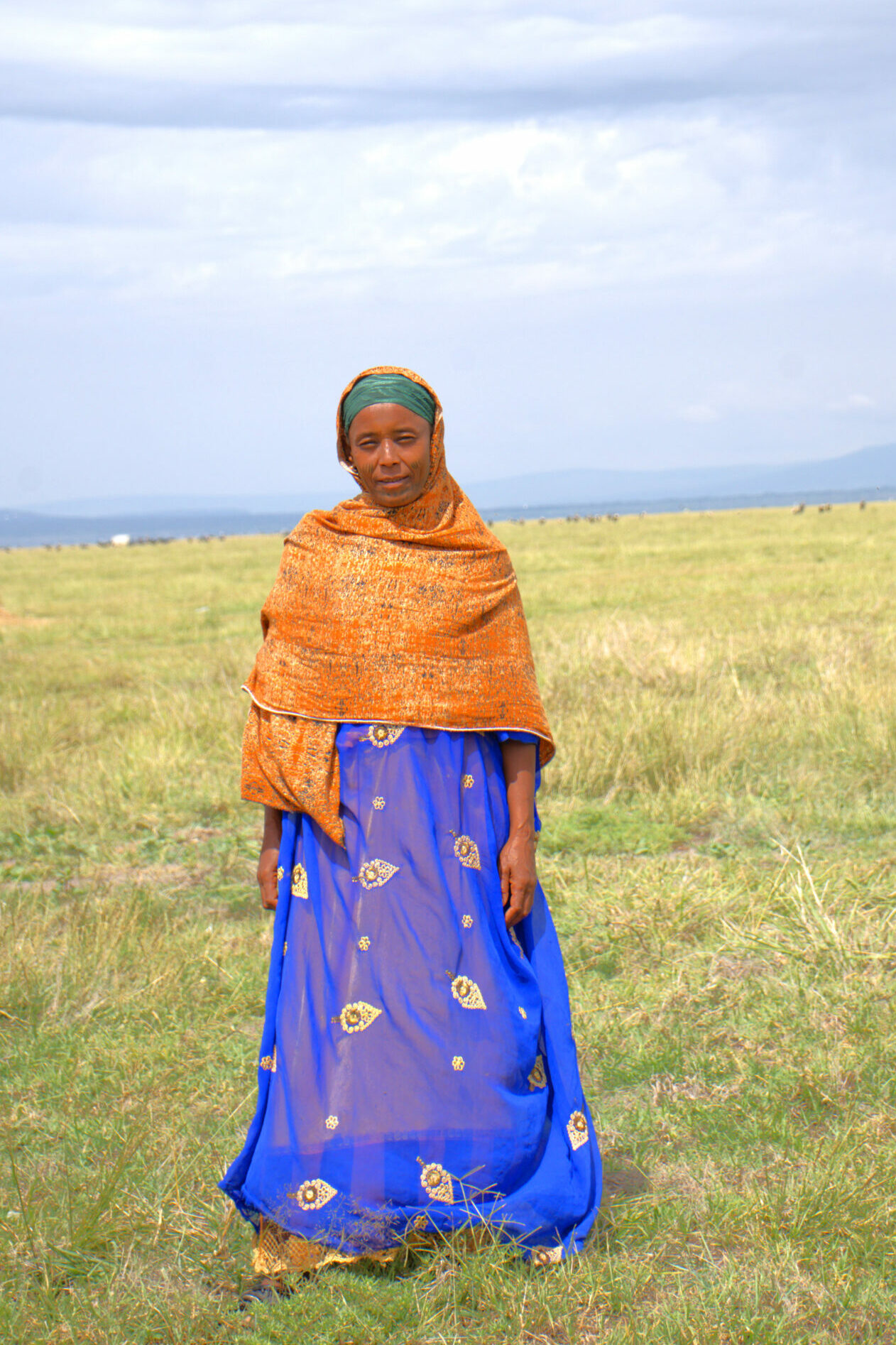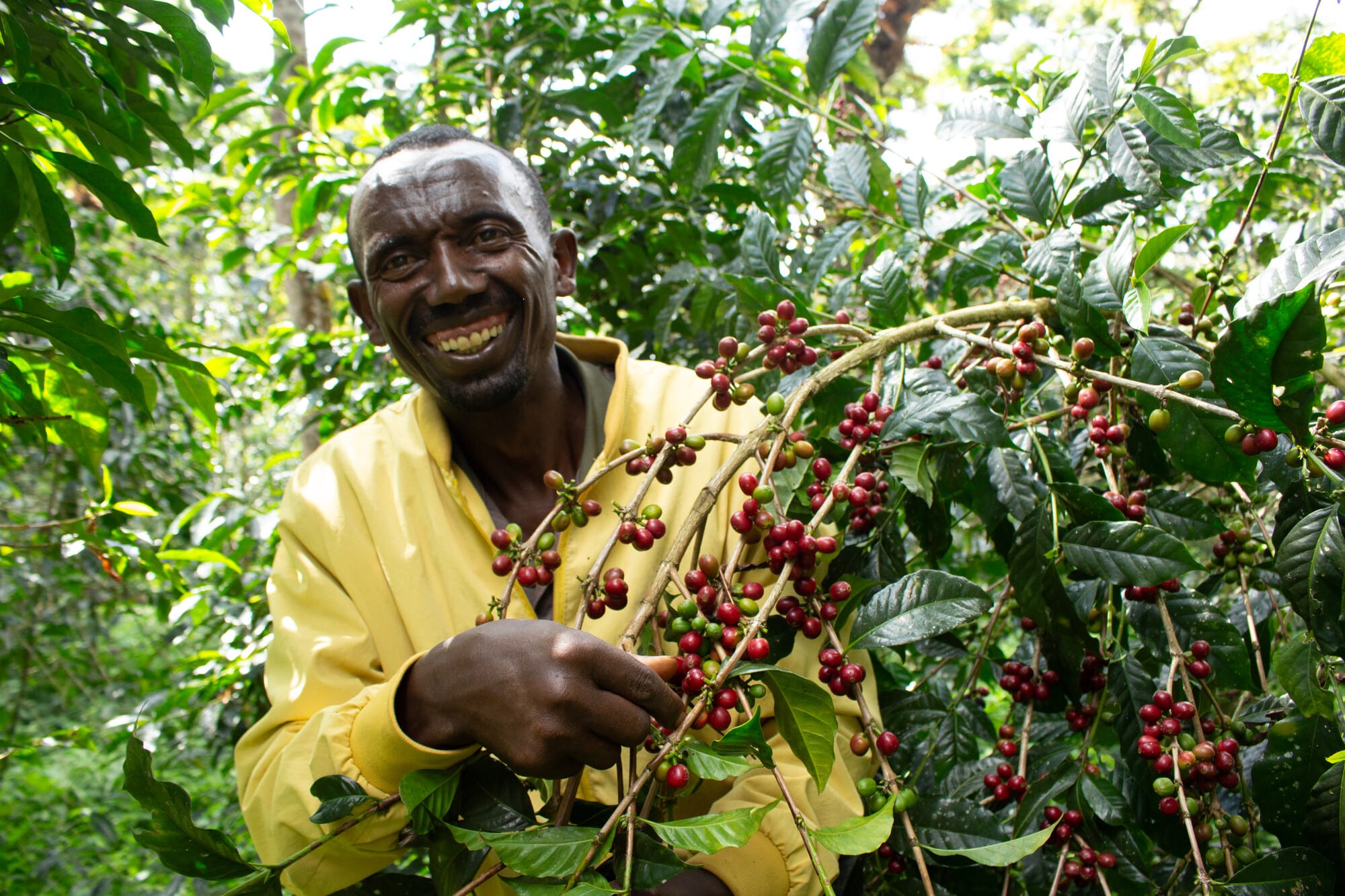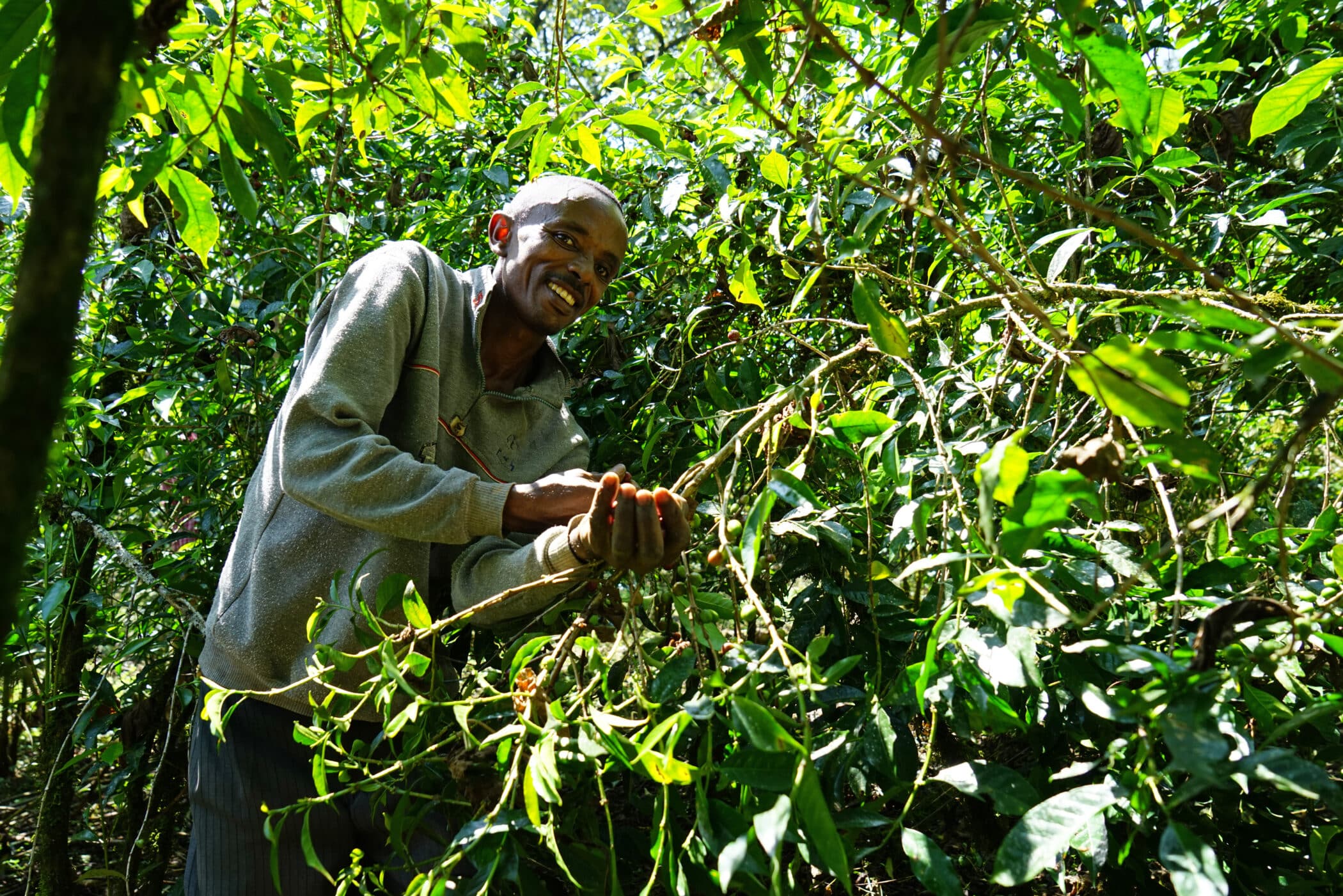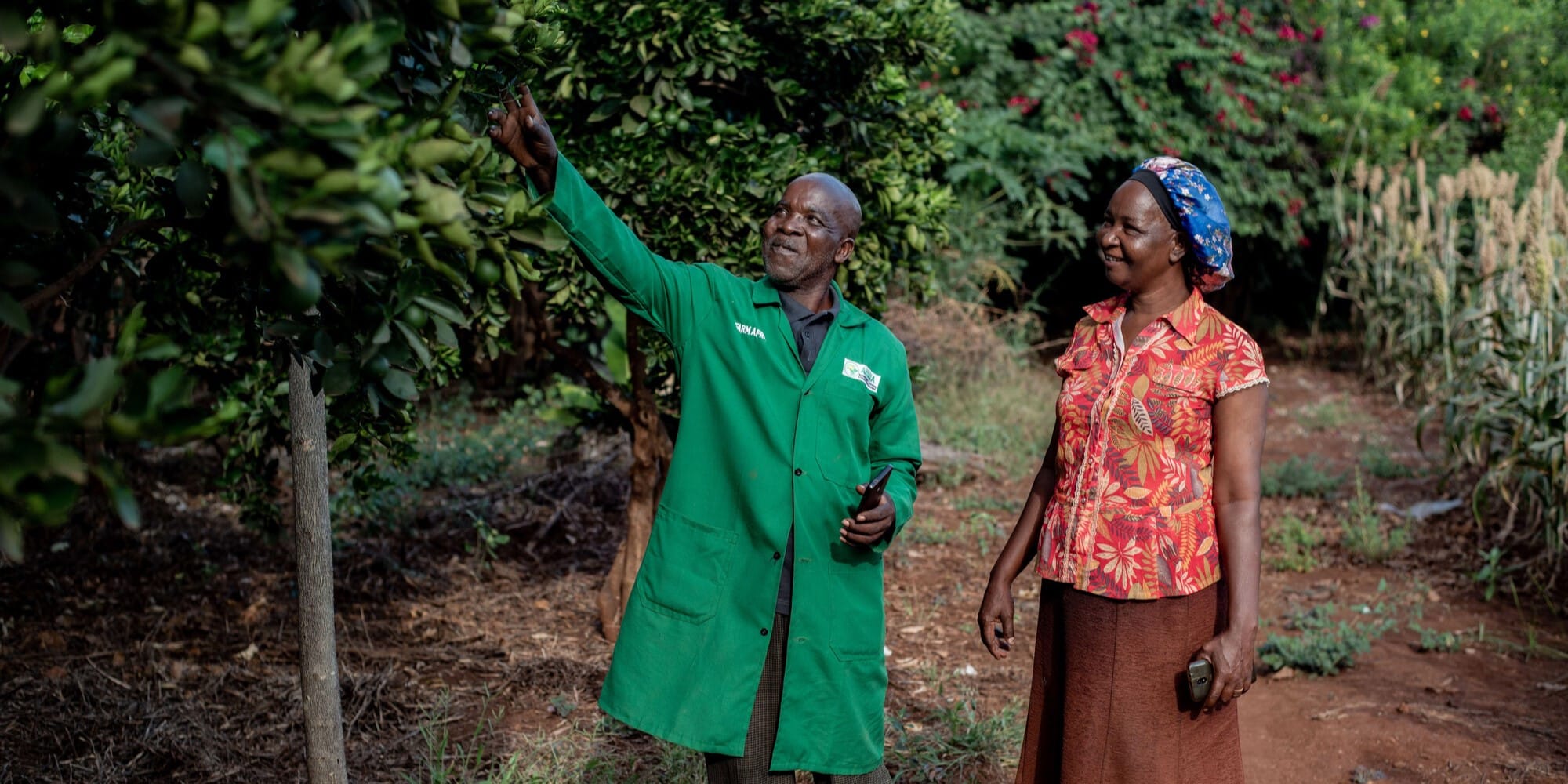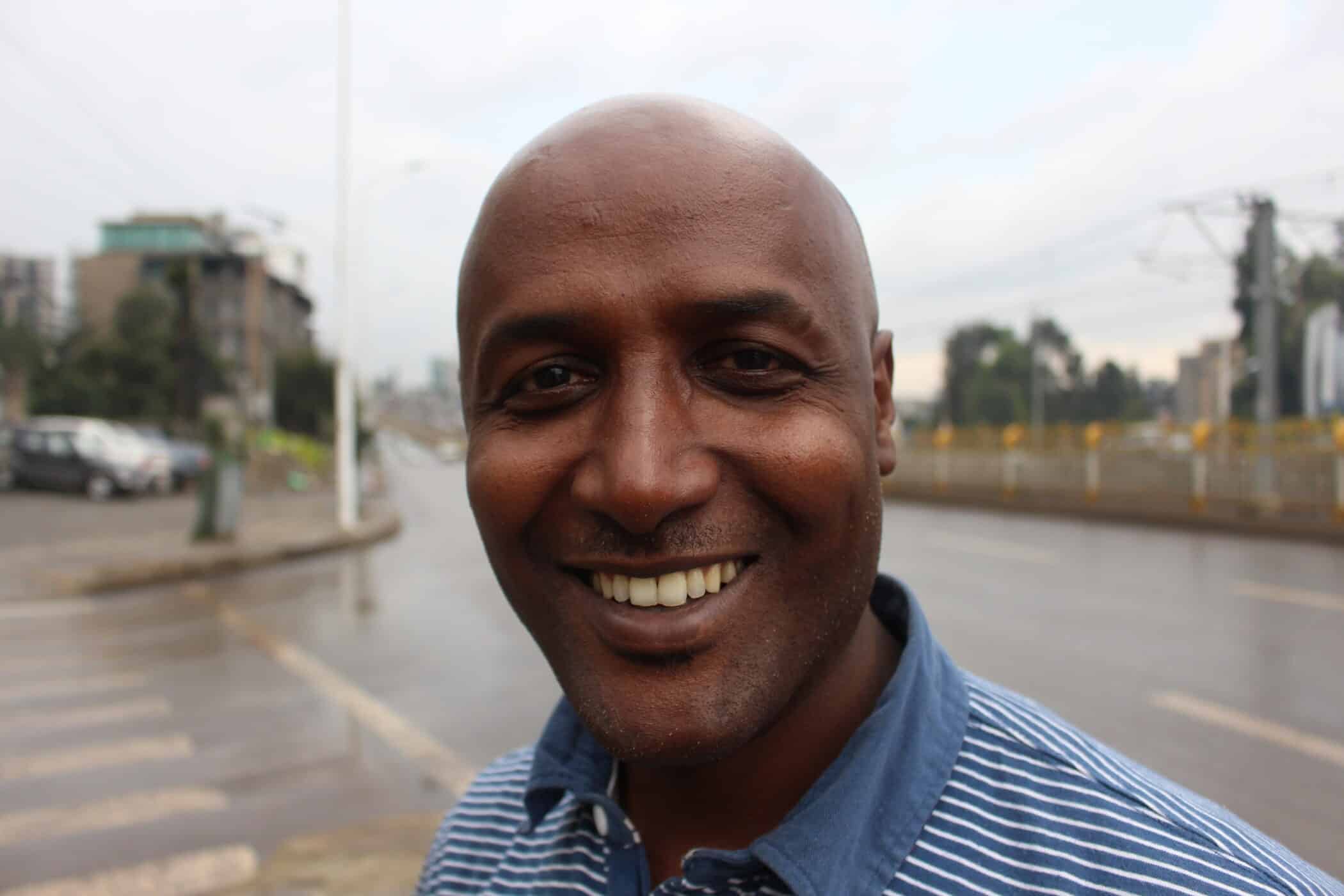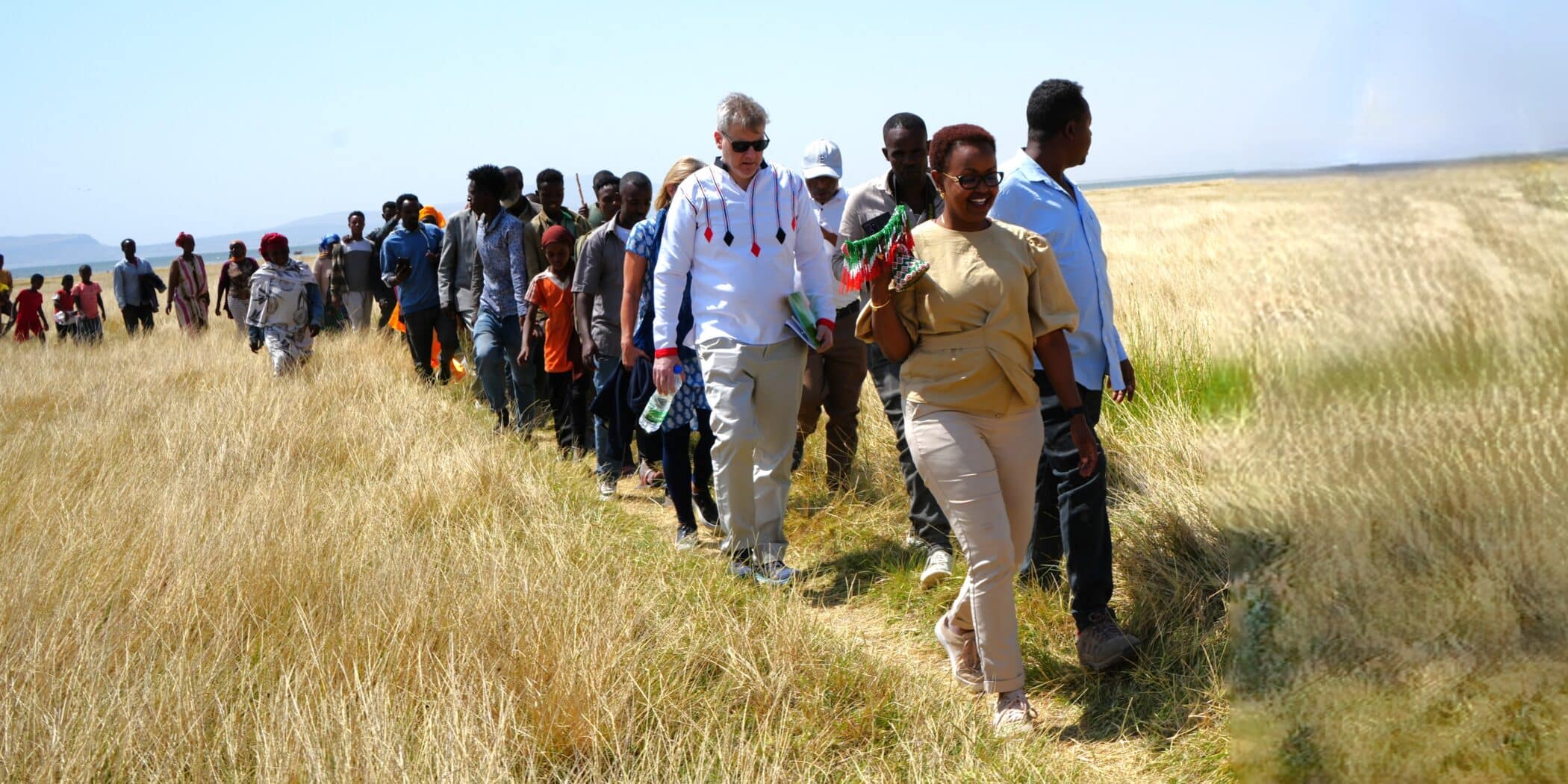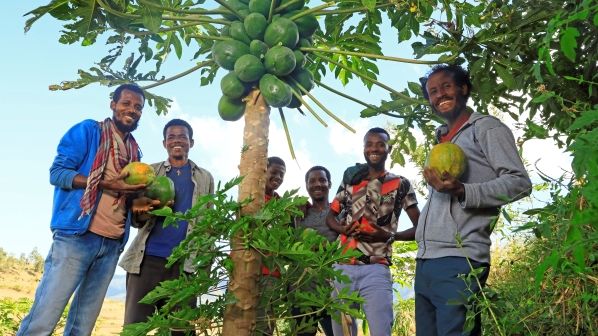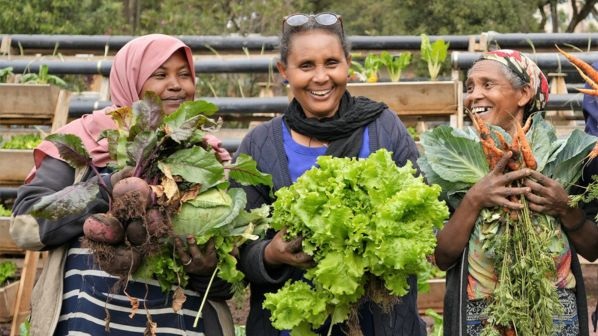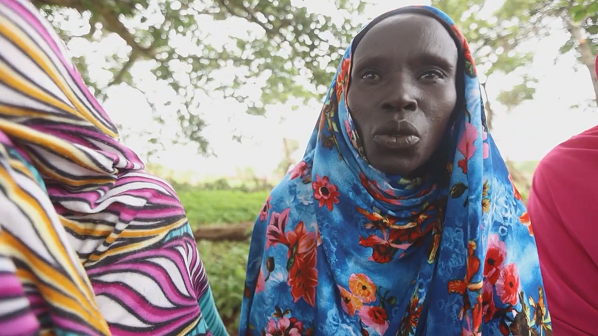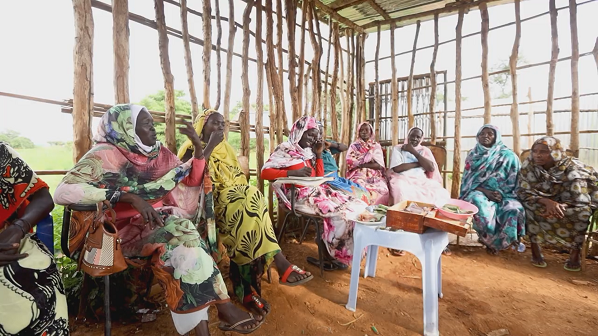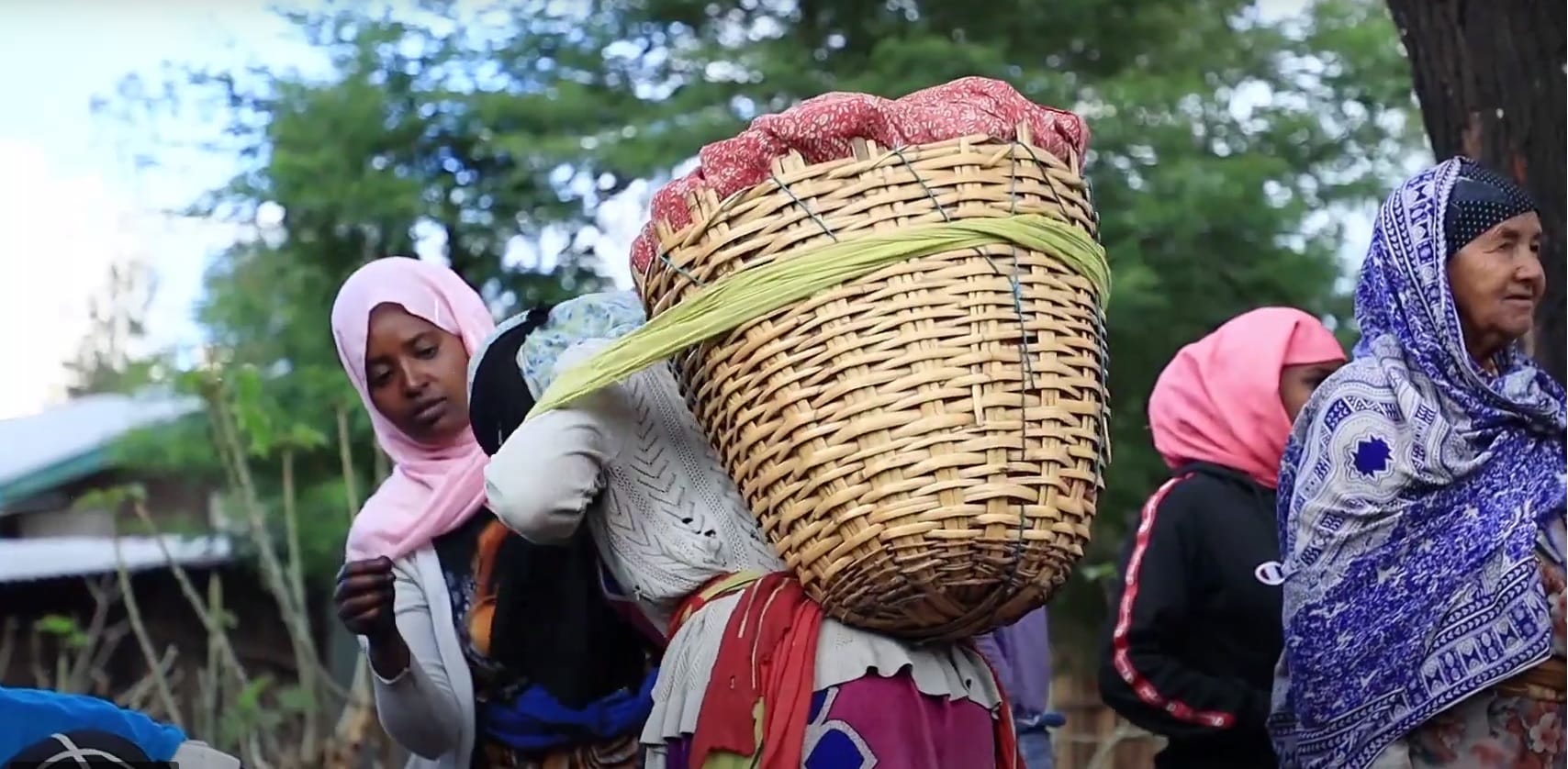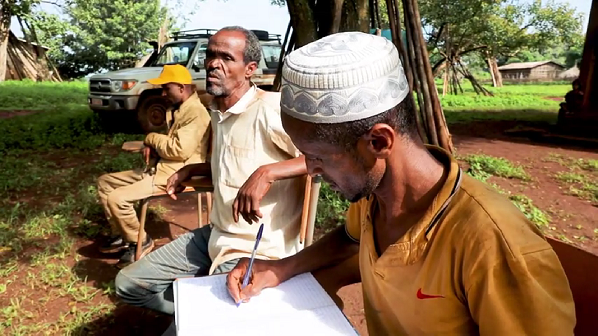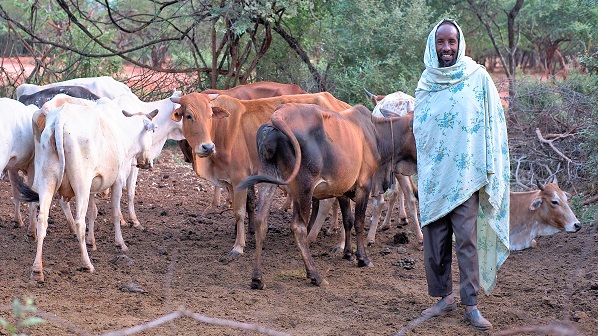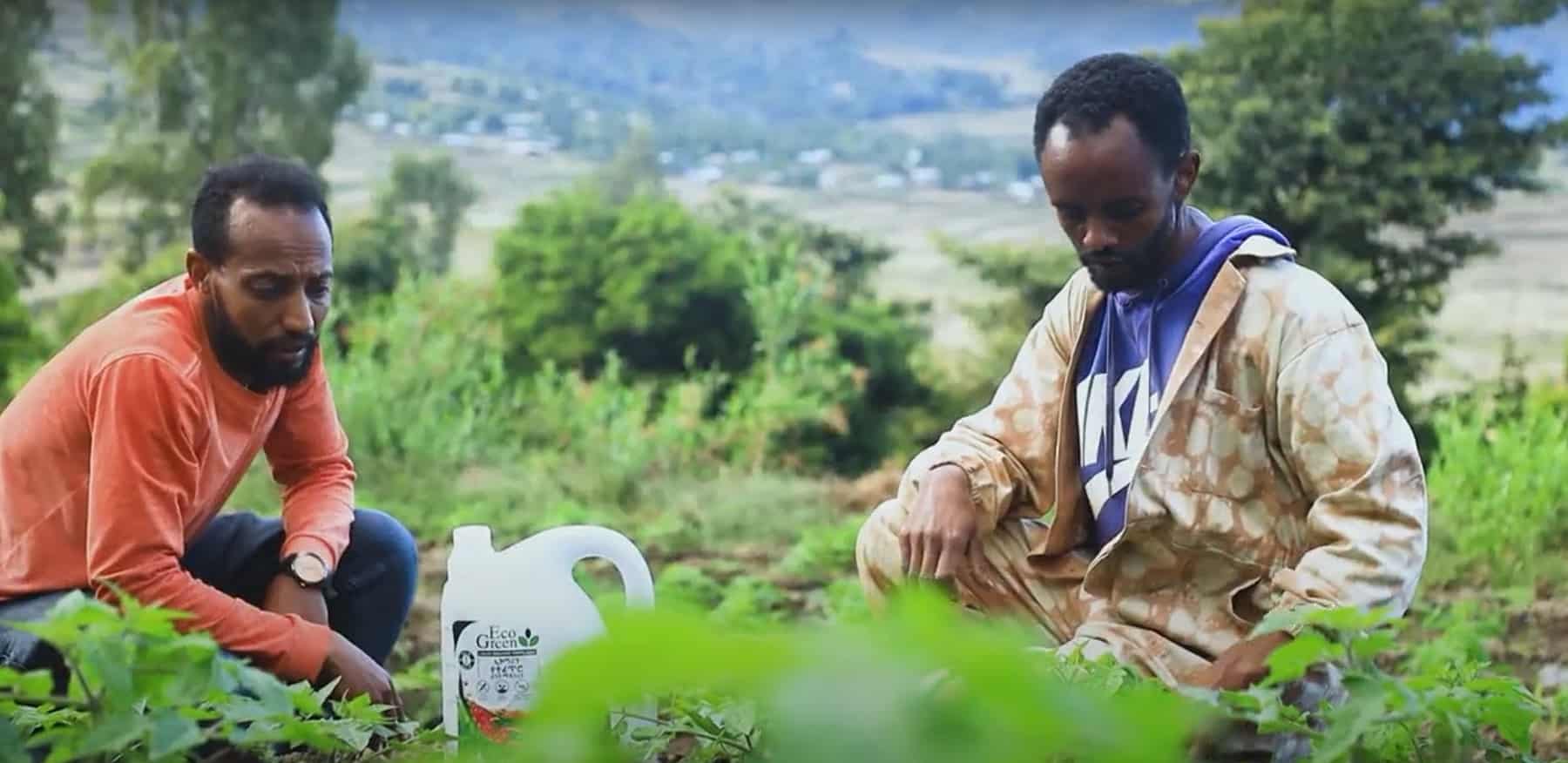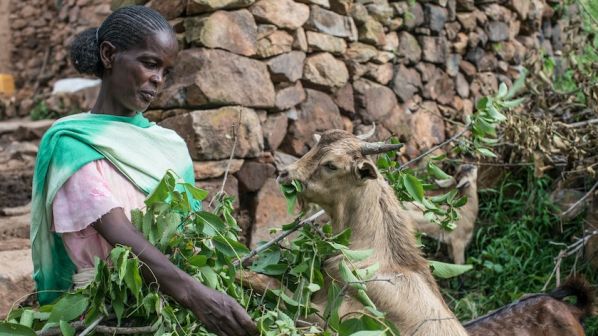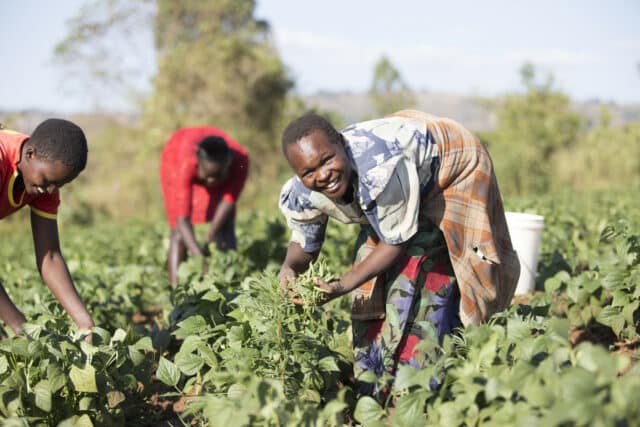Countries we work in
Ethiopia
Farm Africa works across Ethiopia helping people who rely on the land to improve their livelihoods and restore their ecosystems.
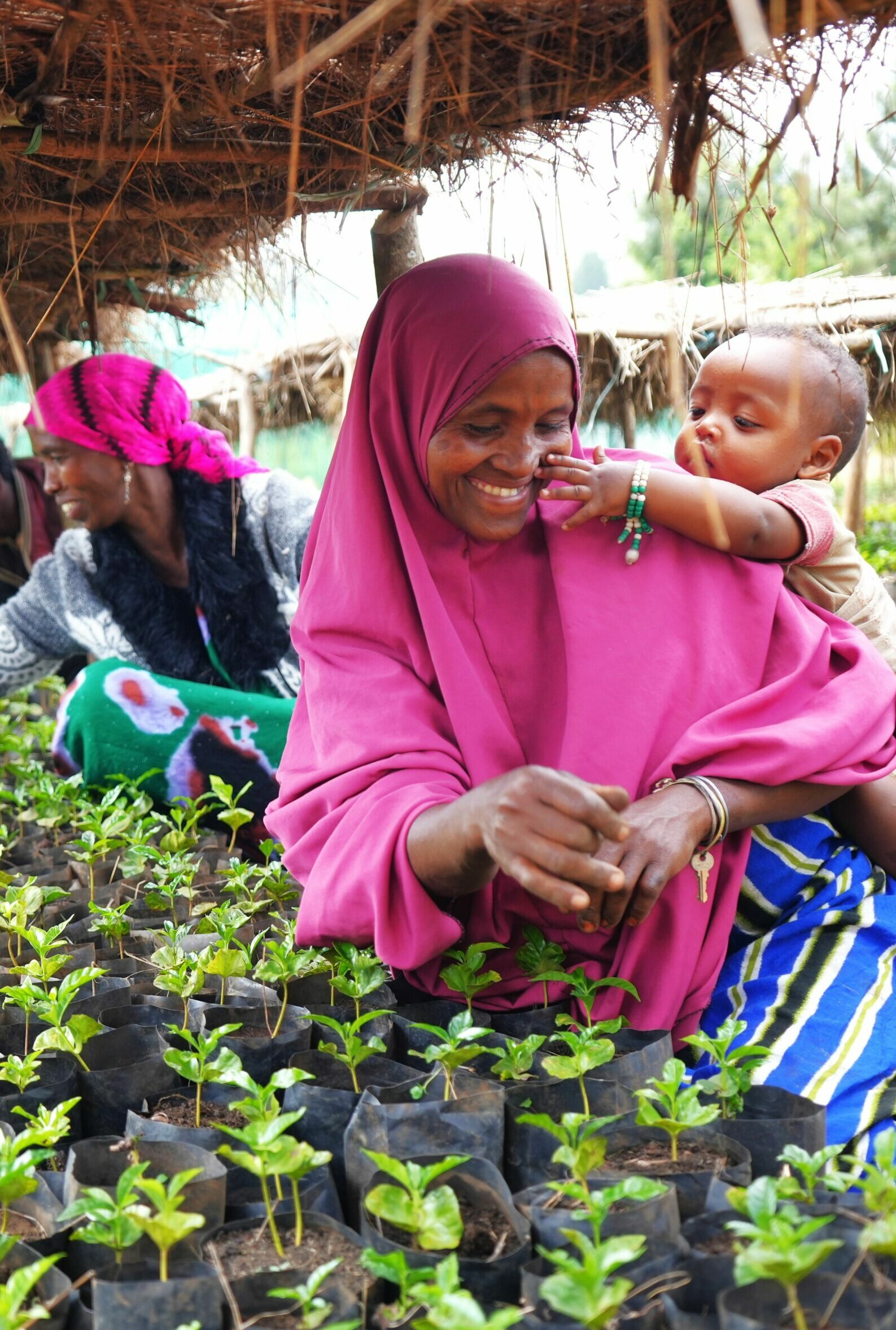
Ethiopia has made remarkable progress in the past 20 years, with over 15 million people lifted out of poverty and great strides made in nature conservation. Today it is one of the top performing economies in sub-Saharan Africa with nine national parks and five UNESCO world biosphere reserves.
Yet that progress is in jeopardy.
With more than three quarters of the country’s population living in rural areas, balancing rural livelihood needs with ecosystem protection is critical.
The country has taken big steps towards sustainability, but climate change, conflict and the global economic crisis are hitting rural people hard. Poverty remains concentrated in rural communities, with most households living on less than 31 pence a day¹.
Conservation challenges
The increasing weather extremes are causing severe droughts and flooding, destroying crops and rangelands and causing a significant decline in the availability of fertile soil and clean water.
Unsustainable practices are widespread as people are forced to compete for dwindling resources. The need for fertile agricultural land is causing forests and grasslands to be cleared for farming. The need to feed livestock is causing overgrazing in open grasslands. The need for fuelwood and construction materials is damaging forests.
30 million
people rely on the tropical forests of Ethiopia's Bale Eco-region for their water supply.
Livelihood challenges
Small-scale farmers are also facing many business challenges. Conflict is disrupting markets. High inflation is driving up costs and wiping out profits.
Many farmers lack business skills and few can obtain finance. Most have poor access to markets and no way of sourcing the technical expertise and products they need to improve their productivity and sustainability.
95%
of Ethiopia's agricultural output is produced by smallholder farmers.
Farm Africa in Ethiopia
Farm Africa works across Ethiopia to help rural communities boost their productivity and incomes while conserving and restoring the ecosystems they rely on.
We understand that the way people use land, forests and water can have a big impact on people living elsewhere – downstream for example. That’s why we take a broad-scale, regional approach, bringing together NGO partners, research institutes, local communities, national parks and government agencies to find inclusive solutions that work for people and for nature.
We help rural communities develop more sustainable ways of using the forests, rangelands, and water sources they rely on.
“You cannot conserve natural resources without thinking about the livelihoods of the community, and you cannot improve livelihoods of the community without thinking about conservation of the environment. The two go hand in hand. If that is jointly planned and jointly executed, any intervention will be successful and sustainable.”

Shewit Emmanuel
Ethiopia Country Director, Farm Africa
Sustainable solutions
Together with our partners, we support communities to roll out climate-smart farming techniques, develop forest-friendly enterprises, trial more sustainable energy solutions, improve their access to markets and more.
Deep expertise
Ethiopia is Farm Africa’s biggest country programme. Having worked in Ethiopia since 1988, and with all of the programme’s 125 staff members being of Ethiopian nationality, we have a deep understanding of the complex challenges people are facing here, and a depth of experience – and partnerships – to draw from for solutions.
Currently, we have eight active programmes working in 16 locations across the country.
Our programmes in Ethiopia
Active
Participatory forest management
Running since
2022
Country
Ethiopia
Target reach
7,200
Key focus areas
Act on climate change
Increase incomes
Protect ecosystems
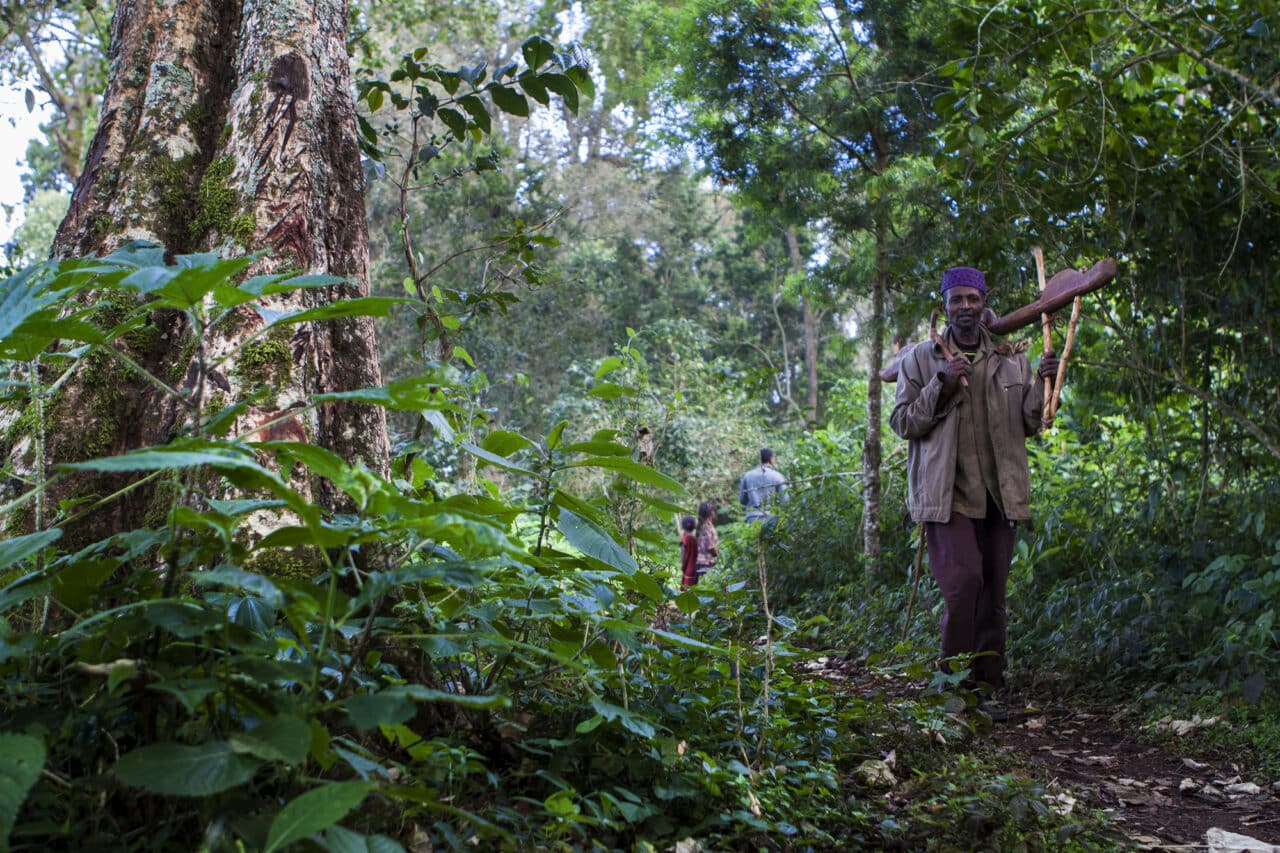
Participatory forest management
Running since
2022
Country
Ethiopia
Target reach
7,200
Key focus areas
Act on climate change
Increase incomes
Protect ecosystems
Active
Participatory forest management
Our Participatory Forest Management project (PFM) aimed to improve forest conservation in two communities, Harena Buluk and Dello Mena woredas, in Ethiopia that have experienced high population growth.
We supported forest community-based organisations (CBOs) to produce and sell more high-quality coffee, improve livestock productivity in a sustainable way and generate knowledge that could guide further livelihood and conservation activity.
Building on past interventions in Ethiopia, the project provided training in forest-friendly farming techniques, fodder production, business skills, biodiversity monitoring and biogas technology to over 1,900 people, who went on to train and assist at least 5,300 more people.
Running since
2022
Country
Ethiopia
Target reach
7,200
Key focus areas
Act on climate change
Increase incomes
Protect ecosystems
Active
Nature-based solutions
Running since
2023
Country
Ethiopia
Target reach
87,000 households
Key focus areas
Act on climate change
Increase incomes
Protect ecosystems
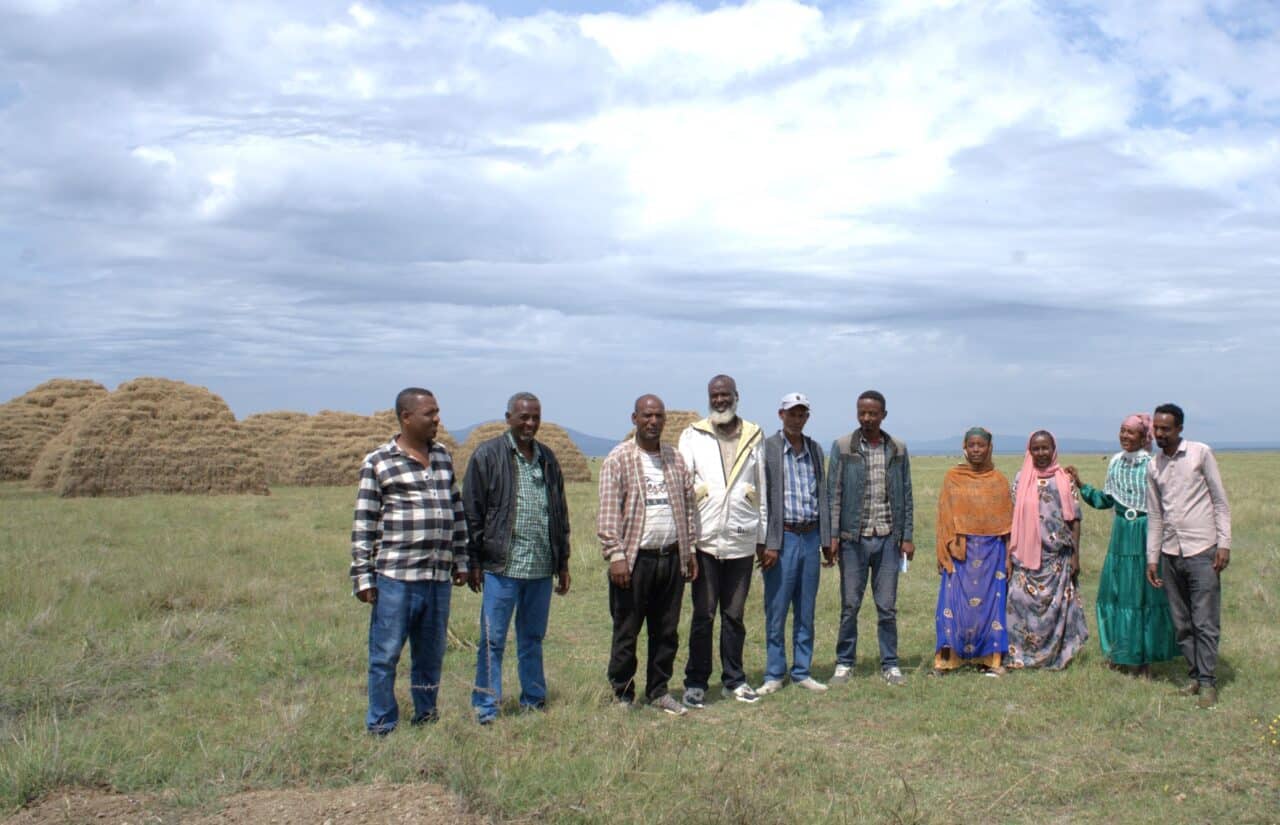
Nature-based solutions
Running since
2023
Country
Ethiopia
Target reach
87,000 households
Key focus areas
Act on climate change
Increase incomes
Protect ecosystems
Active
Nature-based solutions
Farm Africa, along with nine partners, is implementing the four-year Nature-based Solutions for Sustainable and Inclusive Development (NSSID) programme in Ethiopia to reduce poverty, build communities’ resilience to climate change and protect the environment.
Running since
2023
Country
Ethiopia
Target reach
87,000 households
Key focus areas
Act on climate change
Increase incomes
Protect ecosystems
Active
Improving wheat production
Running since
2024
Country
Ethiopia
Target reach
130,450 people
Key focus areas
Boost productivity
Empower women
Increase incomes
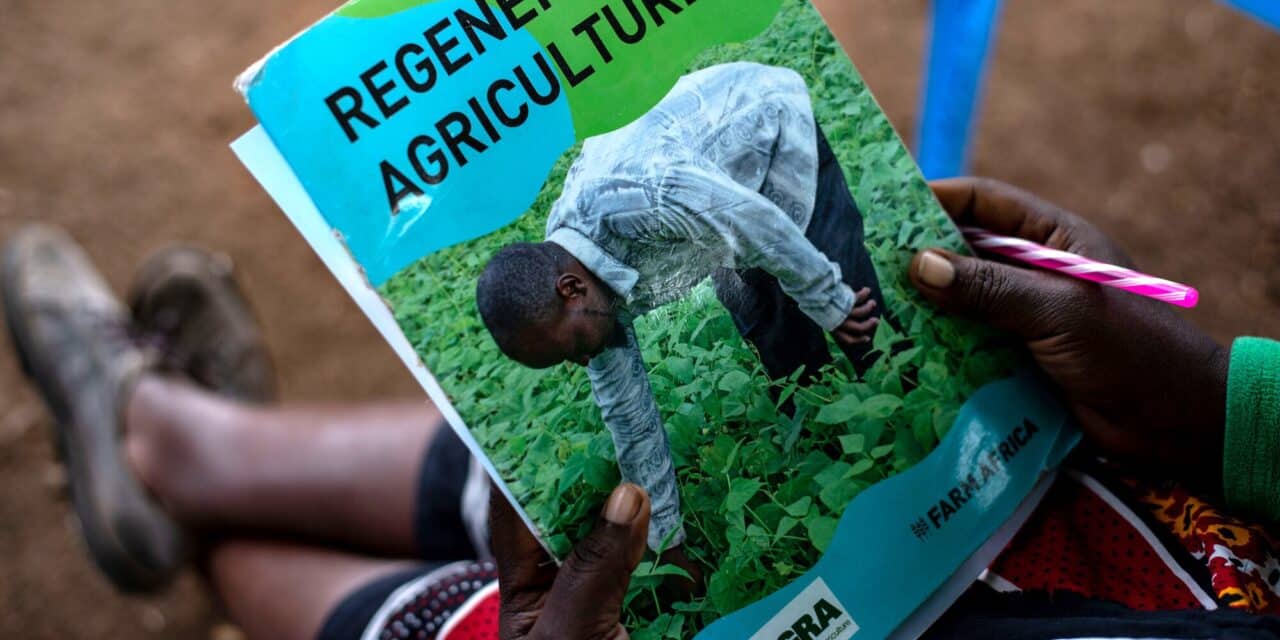
Improving wheat production
Running since
2024
Country
Ethiopia
Target reach
130,450 people
Key focus areas
Boost productivity
Empower women
Increase incomes
Active
Improving wheat production
This programme aims to help 130,450 smallholder wheat farmers in Oromia Regional State, Ethiopia, overcome challenges that are undermining their livelihoods. We’re working together to improve access to advisory services and supplies, improve crop productivity and grain storage methods and increase opportunities to share knowledge. Along the way, we’re aiming to improve opportunities for women and young people, from providing technical training to improving access to finance to creating job and entrepreneurial business opportunities.
Key activities include rolling out training on climate-smart methods for wheat production, modernising post-harvest and storage technologies, supporting local women to start their own agricultural supply and advisory businesses, and supporting women to establish and effectively run their own village savings and loan associations.
The 20-month programme, which launched in October 2024, is funded by AGRA. It draws experience from Farm Africa’s successful regenerative agriculture work in Embu, Kenya, also funded by AGRA.
Running since
2024
Country
Ethiopia
Target reach
130,450 people
Key focus areas
Boost productivity
Empower women
Increase incomes
Watch
Resources
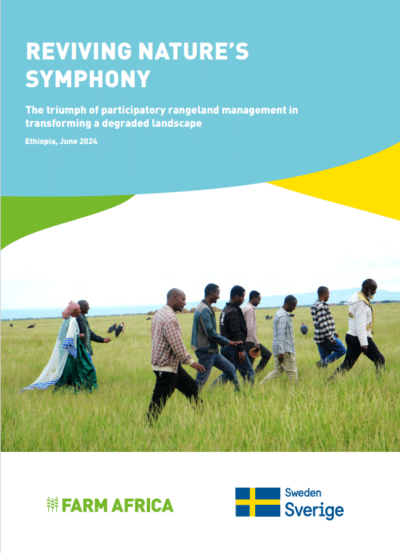
Reviving nature’s symphony: the triumph of participatory rangeland management in transforming a degraded landscape
More info
Country
Ethiopia
Key focus areas
Act on climate change
Increase food security and nutrition
Protect ecosystems
Reviving nature’s symphony: the triumph of participatory rangeland management in transforming a degraded landscape
This case story describes the success achieved by a community rangeland management cooperative in restoring degraded grasslands at Ethiopia’s Abijatta-Shalla National Park in the Great Rift Valley. The rapid transformation showcases what can be achieved by combining innovative techniques, collaborative effort and community engagement.
Download (1.95mb)

Country
Ethiopia
Key focus areas
Act on climate change
Increase food security and nutrition
Protect ecosystems
Country
Ethiopia
Key focus areas
Boost productivity
Increase incomes
Protect ecosystems
A greener future on a grand scale: a summary of the Bale Eco-region Phase II project
Ethiopia’s Bale Eco-region is an ecologically critical area and also home to many people who depend on its resources for their livelihood. Since 2014, Farm Africa has been leading a consortium to improve livelihoods in the region while ensuring the ecosystem is protected. The first phase of the project developed a management strategy for the region. Phase II (2019-2024), funded by the European Union, has scaled out the strategy to reach over 1.6 million people. This report summarises those Phase II activities and outcomes.
Download (3.96mb)
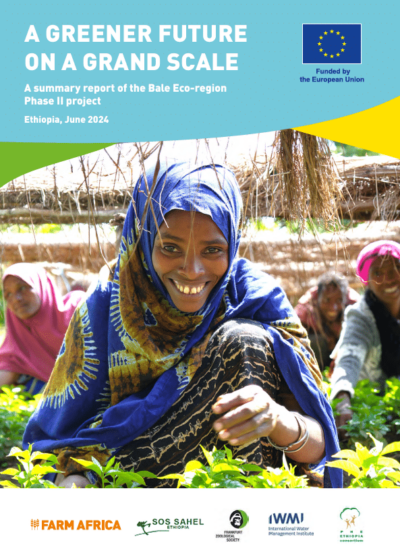
Country
Ethiopia
Key focus areas
Boost productivity
Increase incomes
Protect ecosystems
Country
Ethiopia
Key focus areas
Boost youth employment
Increase incomes
Protect ecosystems
Eco-tourism opportunity in Ilu Ababor Ethiopia
Although Ilu Ababor Zone in Ethiopia is presently unknown to tourists, a recent scoping study carried out by Farm Africa, Mattu University and Oromia Tourism Commission has found strong potential for sustainable eco-tourism development. This study summary outlines key findings and describes, in detail, 7 priority sites for eco-tourism development consideration.
Download (1.05mb)
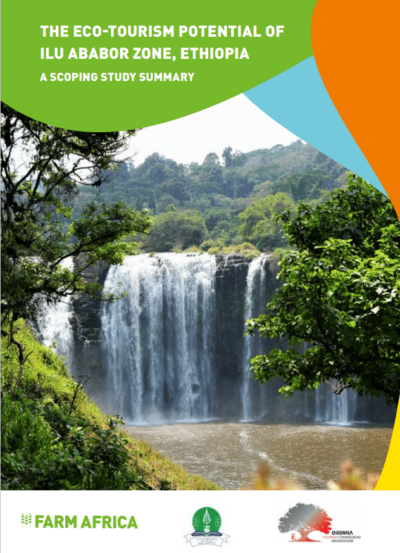
Country
Ethiopia
Key focus areas
Boost youth employment
Increase incomes
Protect ecosystems
Country
Ethiopia
Key focus areas
Connect farmers to markets
Increase food security and nutrition
Strengthen food systems
Strengthening agricultural market systems
A summary report of Farm Africa’s market systems project in Amhara, Ethiopia, which aimed to improve food security and livelihoods of small-scale farmers by making market systems more inclusive. This project was part of the Growth for the future project, funded by Sida.
Download (1.21mb)
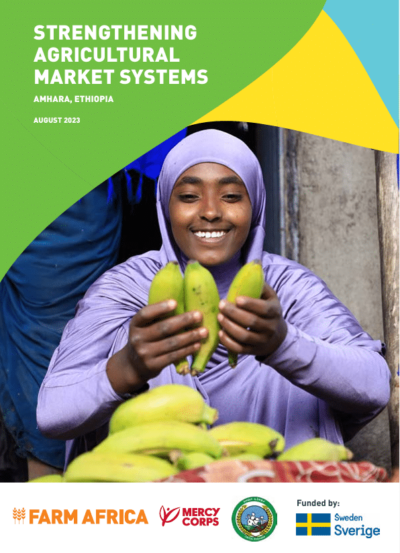
Country
Ethiopia
Key focus areas
Connect farmers to markets
Increase food security and nutrition
Strengthen food systems
Country
Ethiopia
Key focus areas
Increase food security and nutrition
Urban agriculture in Addis Ababa, Ethiopia
In 2022 Farm Africa worked with Ethiopia’s Ministry of Planning and Development (MoPD) to implement a 15-month urban agriculture pilot project in the city. The project aimed to:
· improve incomes, nutrition and food security for 100 low-income households by training them in urban agriculture
· create a learning hub for the sharing of urban agriculture techniques
· promote urban beautification and environmental protection.
Download (2.13mb)
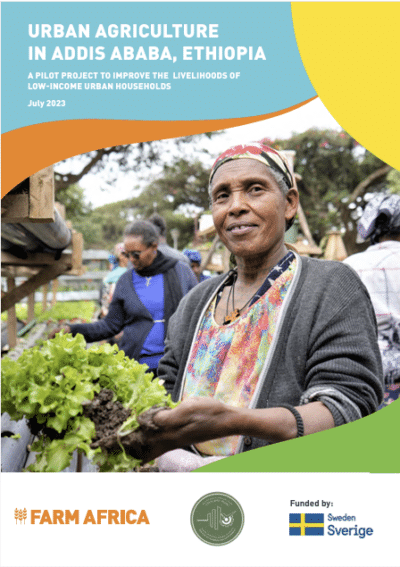
Country
Ethiopia
Key focus areas
Increase food security and nutrition
Country
Ethiopia
Key focus areas
Increase food security and nutrition
Increase incomes
Protect ecosystems
Nature-based Solutions factsheet
A four-page summary of Farm Africa’s Nature-based Solutions for Sustainable and Inclusive Development programme in Ethiopia, funded by Sida. The programme, which runs from 2023 to 2026, aims to sustainably manage forests, conserve biodiversity, build communities’ resilience to climate change and develop sustainable livelihoods through holistic nature-based solutions across six river basins in Ethiopia, clustered into three eco-regions.
Download (4.64mb)
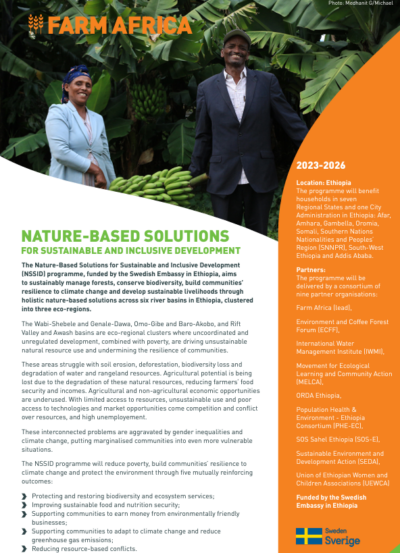
Country
Ethiopia
Key focus areas
Increase food security and nutrition
Increase incomes
Protect ecosystems
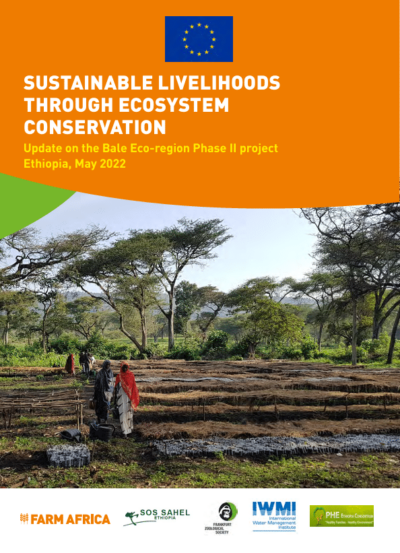
Sustainable livelihoods through ecosystem conservation: Update on the Bale Eco-region Phase II project
More info
Country
Ethiopia
Key focus areas
Boost productivity
Increase incomes
Protect ecosystems
Sustainable livelihoods through ecosystem conservation: Update on the Bale Eco-region Phase II project
The BER phase II project aims to improve the livelihoods of vulnerable people in south-eastern Ethiopia and to protect the environment through an integrated ecoregional development approach. This report gives an update on the achievements of the project and features testimonies from those directly involved.
Download (4.32mb)

Country
Ethiopia
Key focus areas
Boost productivity
Increase incomes
Protect ecosystems
Country
Ethiopia
Key focus areas
Boost productivity
Connect farmers to markets
Protect ecosystems
Marketing Bale’s wild coffee
Factsheet on Farm Africa’s Marketing Bale’s wild coffee project. The project helped wild coffee farmers in Ethiopia’s Bale Eco-region develop production, processing and trading systems that enabled them to sell to speciality coffee markets.
Download (1.99mb)
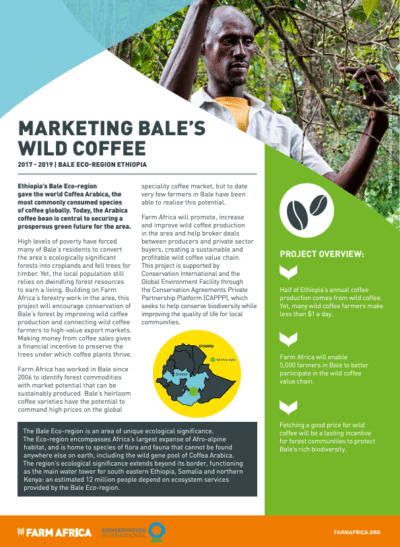
Country
Ethiopia
Key focus areas
Boost productivity
Connect farmers to markets
Protect ecosystems
